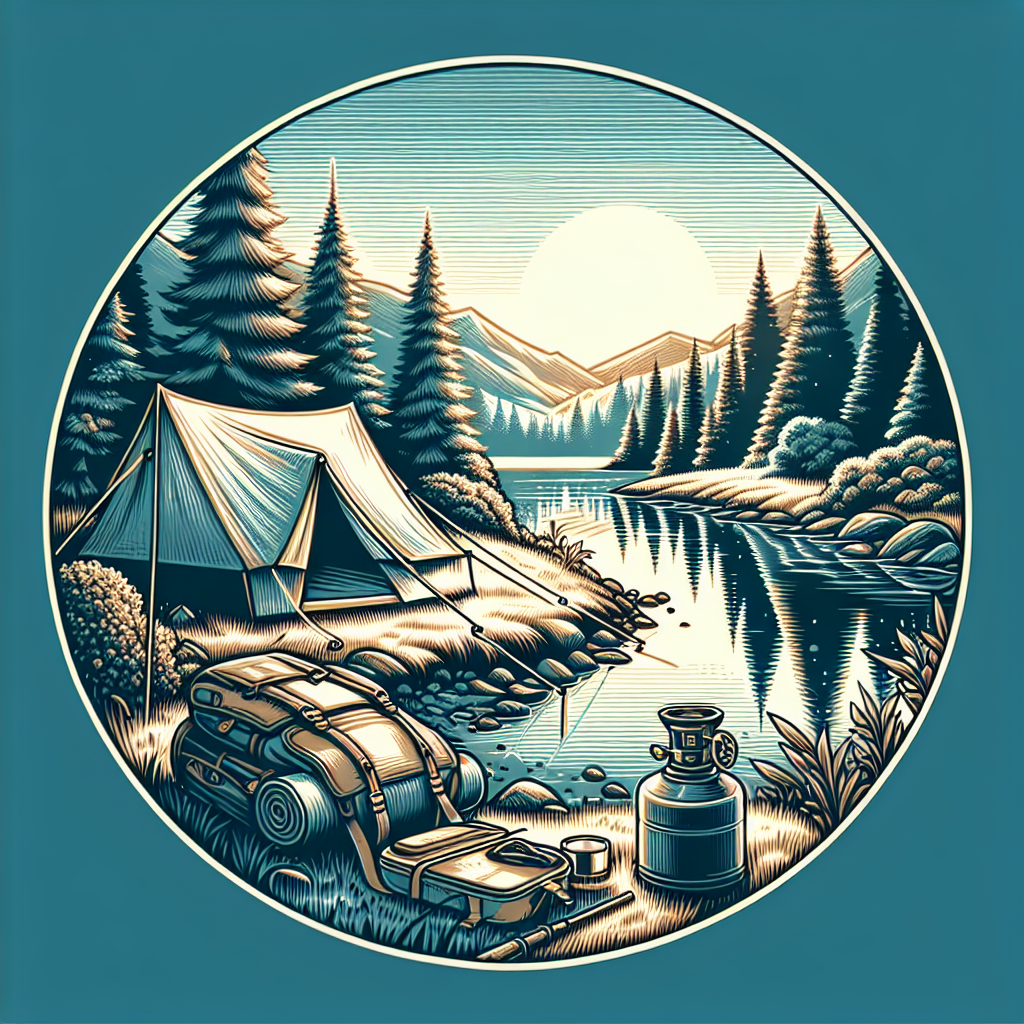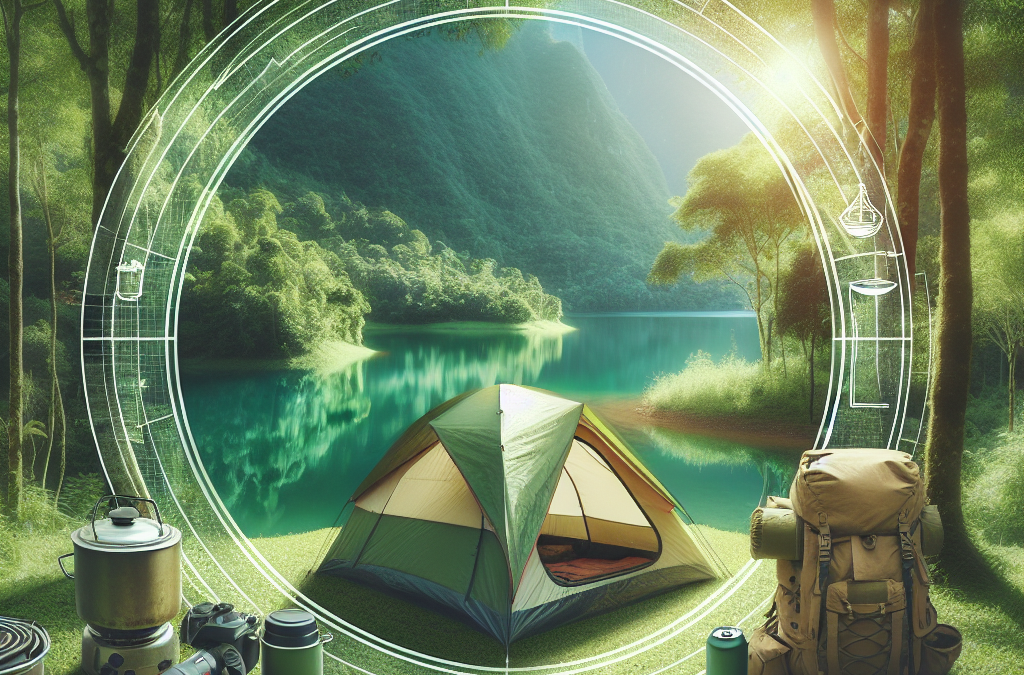Imagine yourself amid nature, in a spot so remote and untouched that traces of human interference seem non-existent. You are surrounded by the whisper of trees, the chirping of birds, and the vast beauty of the universe unfolding above you; this was your dream camping experience. Yet, there’s something you need to keep in mind. The article titled “Camping In Remote Locations: Safety And Preparation” brings to light important points for ensuring your safety and readiness while camping in such isolated areas. From making a comprehensive packing list to strategies for handling potential risks, this comprehensive guide equips you for your next thrilling camping adventure.
Understanding Remote Location Camping
Going on a camping trip in a remote location is an exhilarating form of adventure that allows you to connect with nature in its most pristine state. Before embarking on such a trip, it’s important to understand what constitutes a remote location and what to expect from a remote camping site.
Defining Remote Location
By definition, a remote location refers to an area that is isolated and difficult to access, often with very few or zero signs of human habitation. This could be deep within a forest, up in the mountains, or even in the desert. The beauty of remote camping lies in its seclusion, allowing you to fully immerse yourself in untamed nature.
Benefits of Remote Camping
Camping in a remote location provides a multitude of benefits. It’s a unique opportunity to embrace tranquillity, disconnect from the hustle and bustle of daily life, and connect more deeply with the natural world. It can also be a wonderful challenge that could build resilience, survival skills and personal growth.
Challenges in Remote Camping
While remote camping can be deeply exciting and fulfilling, it also presents a few challenges. The isolation can mean you’ll need to be entirely self-sufficient, and emergency help might not be readily available. Weather conditions can change quickly in some locations, and there’s also the inherent risk of wildlife encounters to consider.
Choosing Your Camping Site
Picking the right camping site plays an integral role in the success of your trip. There’s a lot to consider to make sure you have a safe and enjoyable experience.
Desirable attributes of a remote camping site
Opt for locations that are safe, legal, and suitable for setting up a tent. The area should be flat, sheltered from harsh winds, and on high ground to avoid potential flooding. The site should also be away from insect breeding grounds and bear trails if possible.
Researching potential camping locations
Before you finalize a camping site, conduct meticulous research. Familiarize yourself with the terrain, local wildlife, and climate. Reading topographic maps and guidebooks can help. If possible, arrange a visit to the prospective site before your actual camping trip.
Online resources for remote camping site discovery
There are plenty of online resources to aid your research. Websites, blogs, and forums dedicated to camping often provide a wealth of information on potential camping sites, including firsthand experiences and advice from seasoned campers.
Security and legality of chosen sites
It’s crucial to ensure that your chosen camping site is legal. Avoid private properties unless you have explicit permission to be there. Camping on public lands requires understanding the rules and regulations. Always prioritize your safety by avoiding dangerous terrains and areas known for criminal activities.

Planning Your Camping Itinerary
Crafting a well-thought-out itinerary guarantees a successful camping trip, enabling you to make the most of your adventure while also ensuring your safety.
Allocating travel times to and from site
Accurately determine the time it’ll take to reach your camping site and plan accordingly. Consider traffic, possible delays, and resting periods. The same consideration should be made for your return.
Planning daily activities
Plan your daily activities to create a balance between adventure and relaxation. Mix hiking, exploring, and other adventurous activities with relaxation periods for reading, wildlife watching, or simple contemplation.
Creating contingency plans
Contingency planning is critical when camping in remote locations. Have backup options for activities should weather conditions or other unforeseen circumstances require you to change your plans. Be prepared for emergencies with an action plan for potential injuries, sudden weather changes, or wildlife encounters.
Packing Essentials for Remote Camping
An enjoyable camping trip is contingent upon packing the right gear. Here’s what you’ll absolutely need:
Camp setup materials
Your camping gear should include a durable tent, sleeping bags, sleeping pads, cooking utensils, and camping chairs. Also, carry tools such as multi-purpose knives and hatchets for general tasks around the campsite.
Food storage and preparation necessities
Pack sufficient food and water for the duration of your trip, along with purification tablets or a water filter. Remember, keep all food and cooking equipment stored securely to avoid attracting wildlife.
Appropriate clothing and footwear
Protective clothing that is suitable for the terrain and weather is a must-have. Also pack sturdy and comfortable footwear for hiking and exploration.
First-Aid Kit and survival gear
Every camper should pack a comprehensive first-aid kit. The kit should include bandages, antiseptic wipes, a splint, and over-the-counter medications for common ailments. Survival gear, such as matches, a whistle, a compass, and a mirror for signaling, are also essential.
Navigation tools and equipment
Consider packing a map of the area, a compass and GPS device to help you navigate the terrain. Having these items is crucial, especially in forested areas where footpaths may not be clearly marked.

Surviving in the Wild
Knowing how to survive in the wilderness is a requisite for any remote location camping.
Basic survival skills
These include knowledge on finding and purifying water, starting a fire, building a shelter, and having basic first-aid techniques up your sleeve.
Finding water in the wilderness
Understanding how to locate a suitable water source in the wilderness is crucial. Look for fast-running streams or morning dew on plants. But never assume water is safe and always purify it before drinking.
Building a fire and cooking
Equip yourself with skills on how to start a fire and cook meals in the outdoors. This will not only help you make your meals but also keep you warm in cold weather.
Wildlife encounters and safety
Educate yourself about wildlife in the area and how to respond to encounters. Always maintain a safe distance and store food away from animals.
Weather Proofing
The weather in remote locations can be unpredictable. It’s important to be prepared to face any unforeseen weather changes.
Understanding local weather patterns
Get accurate forecasts for the duration of your camping trip. Midday heat, night-time colder temperatures, rainfall, and wind speed can greatly impact your camping experience.
Camping gear for adverse weather
Your camping gear should be capable of withstanding adverse weather. Decent quality waterproof tents, cold-weather sleeping bags, and a sturdy camping stove are a few essentials to consider.
Handling weather emergencies while camping
Develop a plan to handle weather emergencies, such as storms, flash floods, and wildfires.
Staying Healthy While Camping
Keeping healthy during your remote camping trip ensures that you can fully enjoy your adventure.
Maintaining hygiene in the outdoors
Practicing simple hygiene measures, such as washing hands before meals and after using the washroom, and keeping your camping area tidy helps prevent illnesses.
Preventing and treating injuries
Be aware of common camping injuries and know basic first aid treatment. Also, protective clothing can help prevent injuries such as accidental falls or severe bug bites.
Food safety while camping
Adopt safe food handling procedures, like separating raw and cooked foods and cooking food to the correct temperature.
Avoiding common camping illnesses
Several illnesses can be contracted while camping. Understanding them and taking preventive measures can help you stay healthy.
Keeping in Touch
Even though the whole point of remote camping is to disconnect, it’s crucial to have a device that can be used for emergency communication.
Communicating in remote areas
Consider satellite phones, personal locator beacons, or ham radios, which can be invaluable for maintaining communication or calling for help in remote areas.
Signal boosters and satellite phones
Signal boosters and satellite phones are reliable options for maintaining contact with the outside world.
Emergency contact plans
Have a detailed emergency contact plan. Make sure someone who’s not on the trip knows your itinerary and can alert authorities if they don’t hear from you as scheduled.
Leave No Trace Principles
The principles of “Leave No Trace” should always be followed to minimize your impact on the environment.
Adhering to the ‘Leave No Trace’ code
This includes principles like disposing of waste properly, minimizing campfire impact, and leaving what you find.
Minimising environmental impact
Strive to minimize your footprint on the environment, respecting wildlife and being considerate of other visitors.
Cleaning up before leaving
Always clean up your campsite before leaving. Leave it in as good or better condition than you found it.
Returning Safely from Your Camping Adventure
Returning from your camping trip should be done with just as much thought and care as getting there.
Post-camping health checks
Upon your return, check for signs of any possible illnesses contracted during the trip, such as ticks or rashes. Seek medical attention if necessary.
Cleaning and storing camping gear
Clean and dry all camping gear before storage to prolong its lifespan and ensure it’s ready for your next adventure.
Reviewing and learning from the camping experience
Reflect on the camping trip. Make notes of what went well and what could be improved for future trips. Every camping trip is an opportunity to learn and improve your skills for the next one.
In conclusion, camping in remote locations can be incredibly rewarding if done properly. With careful planning, wise decision-making, and adherence to the principles of safe camping, you’re in for a truly unforgettable adventure!

